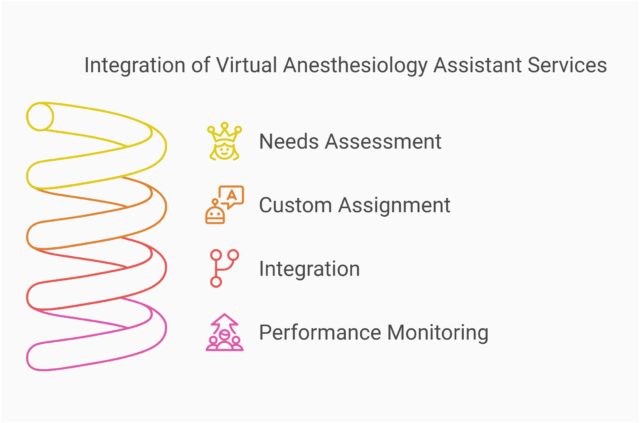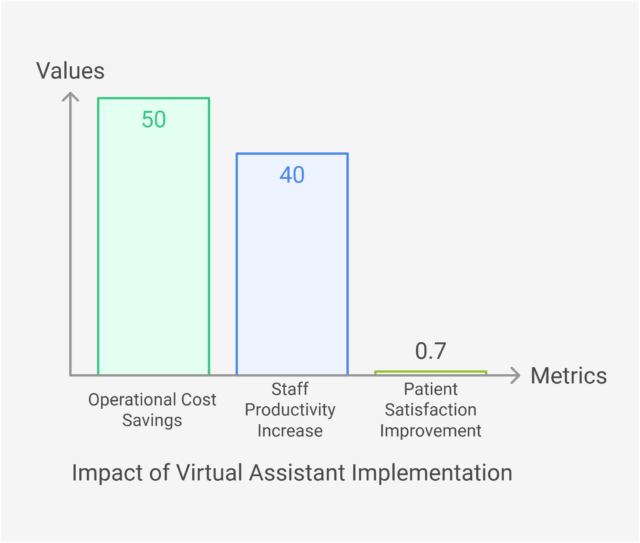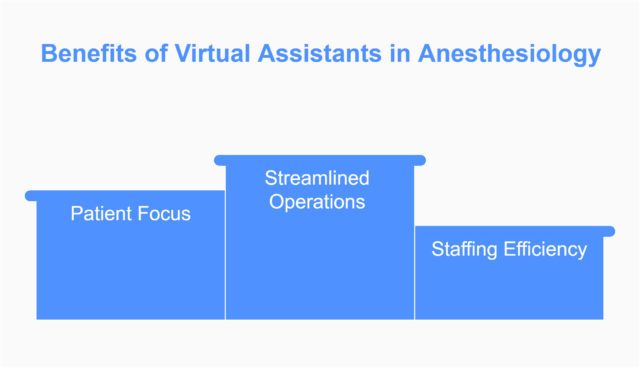Abstract
Anesthesiology practices operate under immense pressure to balance precision-driven clinical care with administrative efficiency. Persistent challenges such as high turnover, administrative overload, and rising operational costs exacerbate these pressures. This case study explores how Rekha Tech LLC’s Anesthesiology Practice Virtual Assistant Services streamlined operations at a mid-sized clinic, enhancing patient care and reducing costs. Using data-driven insights, this study highlights the measurable benefits of integrating virtual assistants for anesthesiology into administrative workflows.
Introduction: Challenges in Anesthesiology Administration
Anesthesiology practices are tasked with delivering high-quality care while navigating intricate administrative demands. Common challenges include:
- Difficulty in Finding Skilled Staff: Recruiting professionals with knowledge of anesthesiology-specific workflows is resource-intensive.
- High Turnover Rates: Frequent staff turnover disrupts workflows and increases costs.
- Administrative Overload: Tasks such as scheduling, billing, and claims processing strain in-house teams.
- Rising Costs: Salaries, benefits, and training for full-time staff create financial strain.
- Impact on Patient Satisfaction: Inefficiencies lead to delays, errors, and dissatisfaction.
These pain points hinder operational growth and patient care quality, prompting a need for innovative solutions.
Methodology: Rekha Tech LLC's Integration Approach
A mid-sized anesthesiology clinic partnered with Rekha Tech LLC to implement Virtual Anesthesiology Assistant Services. The process included the following steps:
- Needs Assessment: Identifying key administrative bottlenecks.
- Custom Assignment: Deploying a trained anesthesiology healthcare virtual assistant tailored to the clinic’s needs.
- Integration: Aligning virtual assistant workflows with existing software and systems.
- Performance Monitoring: Evaluating operational metrics and refining workflows for optimal efficiency.


Results: Measurable Improvements in Practice Efficiency
Operational Cost Savings
Pre-implementation costs: $45,000/month (salaries, benefits, training).
Post-implementation costs: $22,500/month (virtual assistant fees).
Savings: 50% reduction in operational costs
Staff Productivity
Pre-implementation: In-house staff spent 65% of their time on administrative tasks.
Post-implementation: Administrative time reduced to 30%, freeing 70% for clinical care.
Productivity Increase: 40%
Patient Satisfaction
Satisfaction scores improved from 3.9/5 to 4.6/5 due to efficient scheduling and billing.
18% increase in patient loyalty metrics
Discussion: Role of Virtual Assistants in Anesthesiology
Virtual assistants have emerged as a cost-effective and scalable solution for administrative challenges in anesthesiology. By delegating repetitive tasks, clinics can:
- Reduce staffing-related disruptions.
- Focus on patient-centric care delivery.
- Enhance operational workflows without expanding in-house teams.
This case underscores the importance of medical anesthesiology practices hiring healthcare virtual assistants to maintain competitiveness in today’s dynamic healthcare environment.

Conclusion
Key Takeaways:
- 50% cost reduction in administrative expenses.
- 40% improvement in clinical productivity.
- 18% increase in patient satisfaction scores.
Future Directions:
Further studies could explore the long-term revenue impact of virtual assistants in anesthesiology and their adoption in multi-specialty practices.
By partnering with Rekha Tech LLC, anesthesiology practices can transform their operations, reduce costs, and prioritize patient care. This case study highlights that adopting virtual assistant for anesthesiology services isn’t just a cost-saving measure—it’s a strategic investment in operational excellence and sustainable growth.
Ready to Transform Your Practice?
Get started with Rekha Tech LLC and let us simplify your dental practice operations today!


